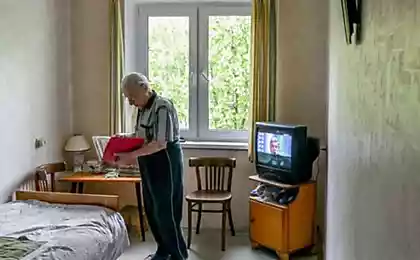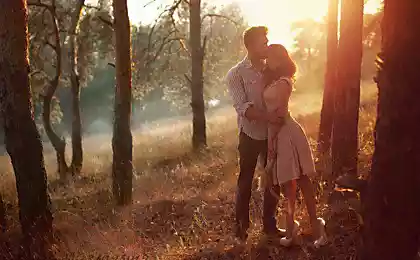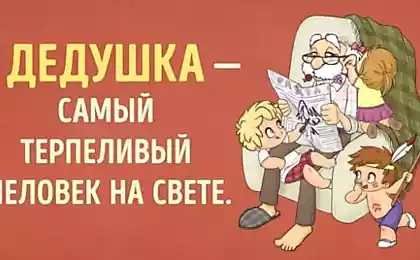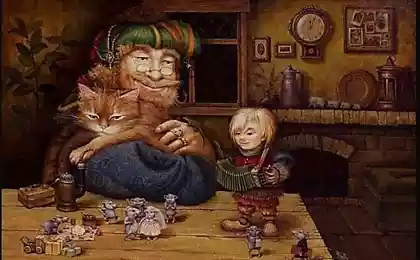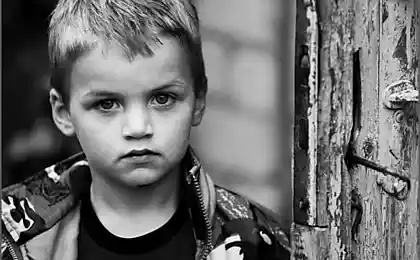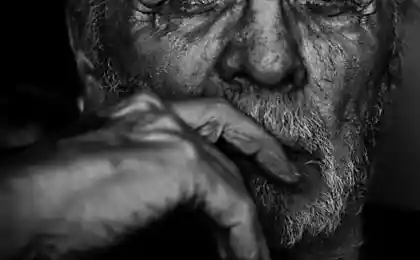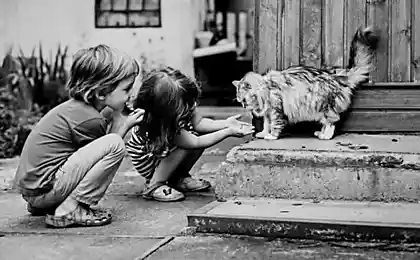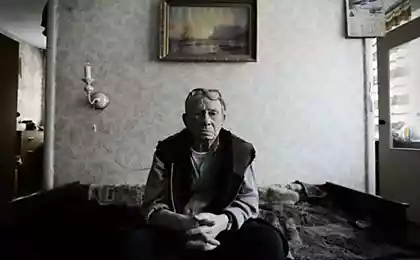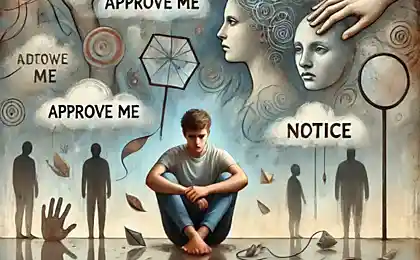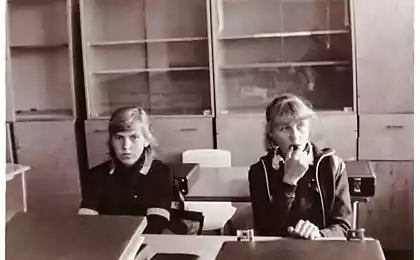473
Grandpa's wisdom is relevant for every day
The teacher from God – that's what I call my grandfather. Unfortunately, he is no longer alive. But his commandments concerning children will remain with me all my life, and I will pass on to my children.
Still amazed at how this simple man had so much wisdom? Grandfather graduated from the 7 classes and school trade school. Went through the war, met my grandma, started a family, built a house and raised two daughters. He worked all his life in the fish farm, at the mechanical workshop for the repair of vessels.
Mom gave birth to me, she told something about my upbringing and development. And he didn't read any clever books on child pedagogy and psychology. He gave advice intuitively, from my own experience and beliefs. And when I finally became a mother (sad that grandpa didn't live to see this moment), my mom told me all grandpa's idea. Now, having had three children and after reading a lot of books about babies, my hat's off to grandpa's wisdom in matters of pedagogy.
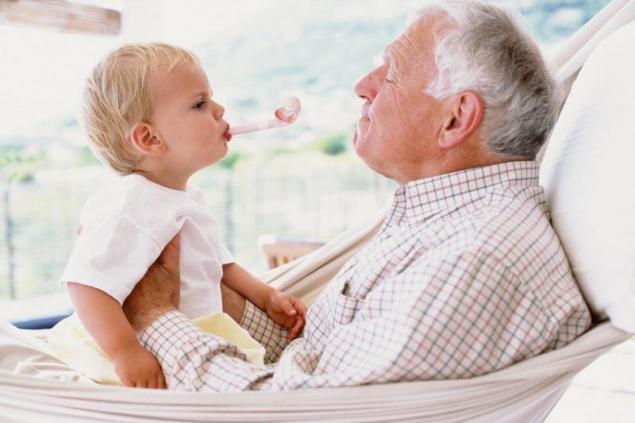
So, grandpa's commandments:
1. A child is a Person
On all of my mother's indignation about my behavior when I didn't do as she wanted, he said: "Daughter, remember. A child is a person. It should not be convenient for you. He knows all my views. Try to accept his vision of the world".
2. If something is promised – do!
If the parent promised something, even in a rush, if only the child behind, and then forgot to perform, or it is inconvenient to carry, or it is no time now, be kind – keep your promise. Or don't promise. Otherwise the child will stop believing you. But to restore confidence, then harder.
3. Not just "no" and explain why "no"
The word "no" for the child – an empty phrase. But if you explain why exactly "not" what's good for the baby to turn around, to explain all the causal relationships of "impossible" – the kid will hear you.
4. Five minutes will not solve anything
Remember my grandfather doing something on the farm (my grandmother always him something instructed), and I run up to him and said, "Grandfather, grandfather! Why... And why...? What is this...?" And the grandfather saved his job and started to chat with me. And my grandmother, seeing this, shouted, "Michael! Don't get distracted! Go faster!". And he told her calm voice: "the lead, 5 minutes will not solve anything. But for a child they can solve much." Try to remember this, when it seems that there is no time, and the children constantly pull issues.
5. To give the child the opportunity to do everything myself
Still in memory is the picture as I climbed onto a small stool and washing the dishes. I was probably 3-4 years. Granddad was washing dishes, and I like any child, wanted to help him. So he allowed me to help him. Here also worked the principle of "Five minutes." He knew that after 5 minutes I get tired of it, but didn't say "Still small" or "Even broken, do not", or "don't bother, he himself will do", and tripped over to the sink, high chair, and I washed. How much soap – the fifth question. He, of course, for me to wash. Yeah, I quickly tired of it. But fact! The child was given the opportunity to do what he wants, what he wants to help, to prove himself. And then another, and was praised for its educational interest. By the way, in a certain period of life (in his youth), I loved to wash the dishes.
6. The expanding horizons of the child
My childhood I remember fondly. I grew up at my grandparents. For some time I went to kindergarten, but from there I don't remember anything. And I remember endless trips and constant communication with my grandfather. We traveled in our small town (I grew up in London), and he told me – a little girl, he'd tell me everything that you saw on your way. Or recalled his childhood and youth, and shared with me. Or we talked together for some "adult" serious topics: the meaning of life, about the world, about God. Or wrote stories. In our walks and conversations he always tried to expand my horizons in any direction. And probably because of this, I still can have several parallel interests and understand completely opposite topics.
And again. Probably thanks to his responsive attitude to my internal world, I write.
How it all began? I remember around the age of 7-8 years, wrote a story. In Soviet times there was a cartoon about Bobby and watchdog, and the grandfather then, on the basis of this cartoon, wrote me stories about inseparable friends – dogs, but that's the nickname they somehow changed. His stories were "About Palkana and Dogs". And I often asked him: "Grandpa, tell me about Palkana and Dogs". It was a fun story about a kind but mischievous dogs.
And once the story was composed by me. Remember, I was fascinated by the creative process! I wrote on the fly and come up with such unexpected plot twists that she started to believe it at all. I think any other adult it would say, "Well, dreamer! Sold! She somehow believe in what they say?" Not my grandpa! He began to praise me! And then tell everyone, "now Yulia – good job! A story I wrote! Wow, what an imagination she has! Still gonna be a writer".
And he said all this sincerely, with undisguised admiration and pride for her granddaughter. Probably, then I "spread their wings" and believed in myself. And then, in high school, I began to write essays that were read by the whole class, and during 5 years of student life – the diaries (recently reread: 4 thick, covered with small handwriting, the notebook — what is the memory of those years!), after graduation went to a local glossy magazine, where he led a column about the city's cultural life, while working in the theatre – interview with the actors for the site of the theatre, and finally articles about children.
That's how important it is to believe in the little man and the time to support it! And it should be done sincerely, with all my heart. Unfortunately, often what the child does (writes, draws, sculpts), I think we, adults – funny, silly, or uninteresting. But for a child it is a huge work, the incredible movements of the mind and creative impulses! And he wants to be heard, understood and accepted.
How grandpa knew such simple truth – a mystery to me.
Grandpa, thank you for your wisdom! It is partly due to the fact that you put in me, and I became the man I am now.
In relation to my children I try to follow the commandments, which you once told my mom, and she gave them to me and I will pass it to their children. published
Author: Yulia Goryachev P. S. And remember, only by changing their consumption — together we change the world! © Join us at Facebook , Vkontakte, Odnoklassniki
Source: vk.com/vselo?w=wall-21920914_7140
Still amazed at how this simple man had so much wisdom? Grandfather graduated from the 7 classes and school trade school. Went through the war, met my grandma, started a family, built a house and raised two daughters. He worked all his life in the fish farm, at the mechanical workshop for the repair of vessels.
Mom gave birth to me, she told something about my upbringing and development. And he didn't read any clever books on child pedagogy and psychology. He gave advice intuitively, from my own experience and beliefs. And when I finally became a mother (sad that grandpa didn't live to see this moment), my mom told me all grandpa's idea. Now, having had three children and after reading a lot of books about babies, my hat's off to grandpa's wisdom in matters of pedagogy.

So, grandpa's commandments:
1. A child is a Person
On all of my mother's indignation about my behavior when I didn't do as she wanted, he said: "Daughter, remember. A child is a person. It should not be convenient for you. He knows all my views. Try to accept his vision of the world".
2. If something is promised – do!
If the parent promised something, even in a rush, if only the child behind, and then forgot to perform, or it is inconvenient to carry, or it is no time now, be kind – keep your promise. Or don't promise. Otherwise the child will stop believing you. But to restore confidence, then harder.
3. Not just "no" and explain why "no"
The word "no" for the child – an empty phrase. But if you explain why exactly "not" what's good for the baby to turn around, to explain all the causal relationships of "impossible" – the kid will hear you.
4. Five minutes will not solve anything
Remember my grandfather doing something on the farm (my grandmother always him something instructed), and I run up to him and said, "Grandfather, grandfather! Why... And why...? What is this...?" And the grandfather saved his job and started to chat with me. And my grandmother, seeing this, shouted, "Michael! Don't get distracted! Go faster!". And he told her calm voice: "the lead, 5 minutes will not solve anything. But for a child they can solve much." Try to remember this, when it seems that there is no time, and the children constantly pull issues.
5. To give the child the opportunity to do everything myself
Still in memory is the picture as I climbed onto a small stool and washing the dishes. I was probably 3-4 years. Granddad was washing dishes, and I like any child, wanted to help him. So he allowed me to help him. Here also worked the principle of "Five minutes." He knew that after 5 minutes I get tired of it, but didn't say "Still small" or "Even broken, do not", or "don't bother, he himself will do", and tripped over to the sink, high chair, and I washed. How much soap – the fifth question. He, of course, for me to wash. Yeah, I quickly tired of it. But fact! The child was given the opportunity to do what he wants, what he wants to help, to prove himself. And then another, and was praised for its educational interest. By the way, in a certain period of life (in his youth), I loved to wash the dishes.
6. The expanding horizons of the child
My childhood I remember fondly. I grew up at my grandparents. For some time I went to kindergarten, but from there I don't remember anything. And I remember endless trips and constant communication with my grandfather. We traveled in our small town (I grew up in London), and he told me – a little girl, he'd tell me everything that you saw on your way. Or recalled his childhood and youth, and shared with me. Or we talked together for some "adult" serious topics: the meaning of life, about the world, about God. Or wrote stories. In our walks and conversations he always tried to expand my horizons in any direction. And probably because of this, I still can have several parallel interests and understand completely opposite topics.
And again. Probably thanks to his responsive attitude to my internal world, I write.
How it all began? I remember around the age of 7-8 years, wrote a story. In Soviet times there was a cartoon about Bobby and watchdog, and the grandfather then, on the basis of this cartoon, wrote me stories about inseparable friends – dogs, but that's the nickname they somehow changed. His stories were "About Palkana and Dogs". And I often asked him: "Grandpa, tell me about Palkana and Dogs". It was a fun story about a kind but mischievous dogs.
And once the story was composed by me. Remember, I was fascinated by the creative process! I wrote on the fly and come up with such unexpected plot twists that she started to believe it at all. I think any other adult it would say, "Well, dreamer! Sold! She somehow believe in what they say?" Not my grandpa! He began to praise me! And then tell everyone, "now Yulia – good job! A story I wrote! Wow, what an imagination she has! Still gonna be a writer".
And he said all this sincerely, with undisguised admiration and pride for her granddaughter. Probably, then I "spread their wings" and believed in myself. And then, in high school, I began to write essays that were read by the whole class, and during 5 years of student life – the diaries (recently reread: 4 thick, covered with small handwriting, the notebook — what is the memory of those years!), after graduation went to a local glossy magazine, where he led a column about the city's cultural life, while working in the theatre – interview with the actors for the site of the theatre, and finally articles about children.
That's how important it is to believe in the little man and the time to support it! And it should be done sincerely, with all my heart. Unfortunately, often what the child does (writes, draws, sculpts), I think we, adults – funny, silly, or uninteresting. But for a child it is a huge work, the incredible movements of the mind and creative impulses! And he wants to be heard, understood and accepted.
How grandpa knew such simple truth – a mystery to me.
Grandpa, thank you for your wisdom! It is partly due to the fact that you put in me, and I became the man I am now.
In relation to my children I try to follow the commandments, which you once told my mom, and she gave them to me and I will pass it to their children. published
Author: Yulia Goryachev P. S. And remember, only by changing their consumption — together we change the world! © Join us at Facebook , Vkontakte, Odnoklassniki
Source: vk.com/vselo?w=wall-21920914_7140



